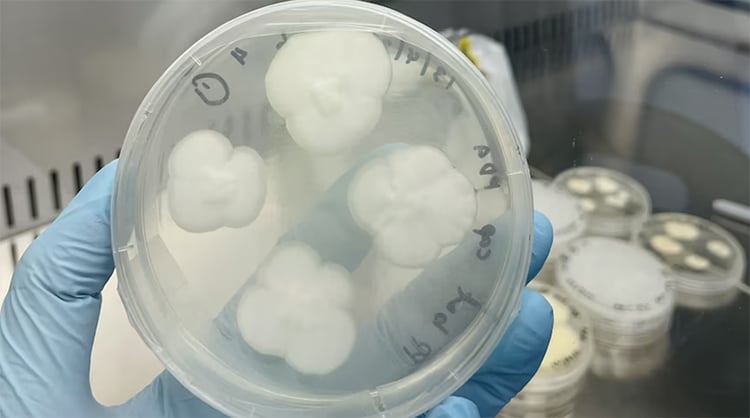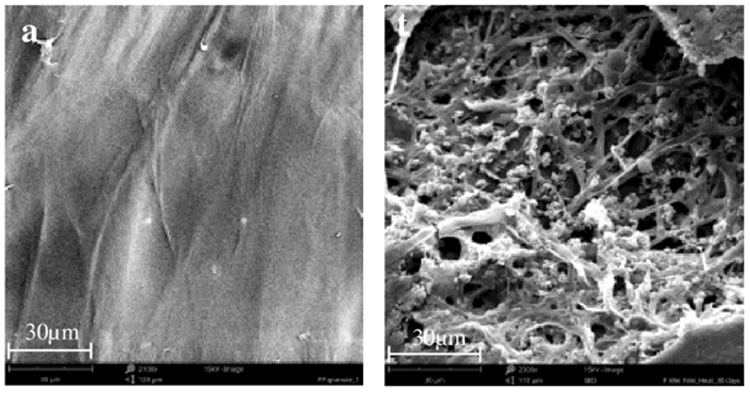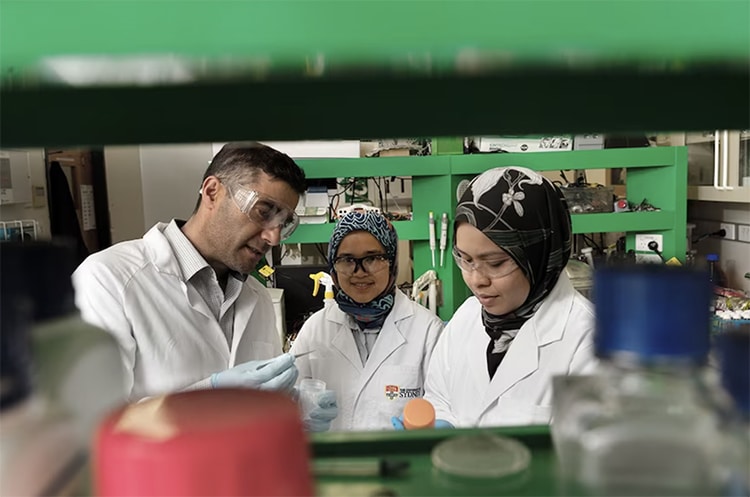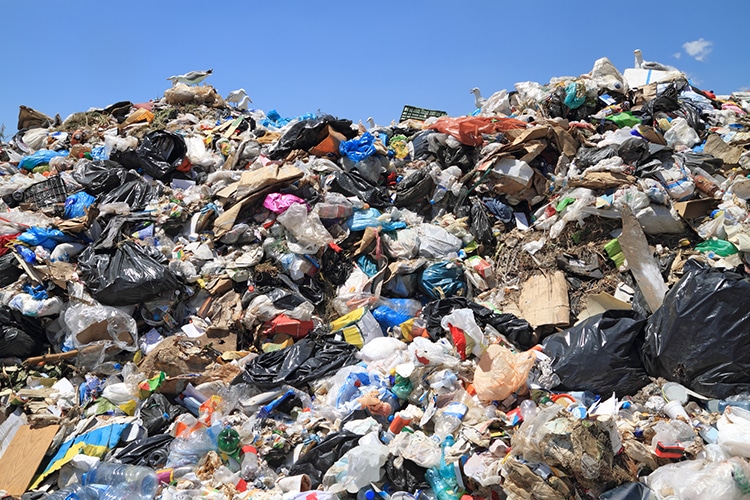Scientists Discover Fungi That Can Eat Plastic in Just 140 Days

This fungus breaks down polypropylene plastic. (Photo: Amira Farzana Samat/University of Sydney)
Our planet has a plastic problem. Accumulated waste and constant production have resulted in mounds of trash around the globe and bobbing in our oceans. Recycling is a good step, but it is limited by the technology's availability and the condition of the plastic in question. With 175 million tonnes (192.9 million tons) of plastic ending up in landfills or as litter per year of the 400 million tonnes (440 million tons) produced around the globe, it is a massive problem that has stumped society for a long time. As scientists endeavor to generate solutions to break down this non-biodegradable trash, a group of researchers at the University of Sydney discovered two common forms of backyard fungi can breakdown polypropylene completely in 140 days.
In a study published in NPJ Materials Degradation, the researchers detailed the results of using Aspergillus terreus and Engyodontium album on polypropylene plastic. The two species of fungi are common forms of mold. The team selected samples of polypropylene, a plastic that makes up to-go containers, plastic film, and other soft plastics. It is rarely recycled and, like other plastics, takes decades to degrade. The plastics were heated and treated with both UV radiation and Fenton's chemical (a reagent).
Next, the plastics were “fed” to the fungi and allowed to incubate for 90 days. After 90 days, the plastic was 27% degraded. After 140 days, it was completely degraded. Professor Ali Abbas, a paper author, noted to ABC Net Australia, “It's the highest degradation rate reported in the literature that we know in the world.” Within five years, the team hopes the fungi can be breaking down landfills around the country. “It is scaling up which is very much similar to any kind of fermentation process,” Abbas said. “That technology already exists for those processes and we're able to now borrow that learning from chemical process engineering and bring it into this particular process here.”
Commercial applications could be even faster with funding and political will. The mold solution could be pivotal for isolated areas which produce waste but lack infrastructure or space to house the waste. This potential solution adds to others such as plastic-eating worms to attack our waste. However, the world also needs to reduce its plastic use, even if full degradation becomes widespread. Plastic production, as well as recycling, produce carbon in large amounts. Degrading through mold will also release carbon. While such solutions are particularly valuable for existing waste, the first R in “Reduce, Reuse, Recycle” is still the most valuable.
Researchers have used common backyard fungi to destroy some of the toughest plastics.

The fungi sets to work. (Photo: University of Sydney)
The molds can destroy polypropylene when activated by heat.

University of Sydney scientists Ali Abbas (left) and Amira Farzana Samat (right). (Photo: University of Sydney)
As accumulating plastics are a key environmental problem, the search for solutions is critical.

Photo: KANVAG/Depositphotos
h/t: [ABC.Net.Au]
Related Articles:
Giant “Faucet” Spewing Single-Use Plastic Urges Us To Reconsider Our Plastic Use
What Is an Ecobrick? Learn About How You Can Build Things Using Your Plastic Trash
Ocean Cleanup Has Removed Over 220 Tons of Plastic Out of the Pacific Ocean
Student Designs 3D-Printed Robot Fish That Filters Microplastics From Water
READ: Scientists Discover Fungi That Can Eat Plastic in Just 140 Days


0 Commentaires